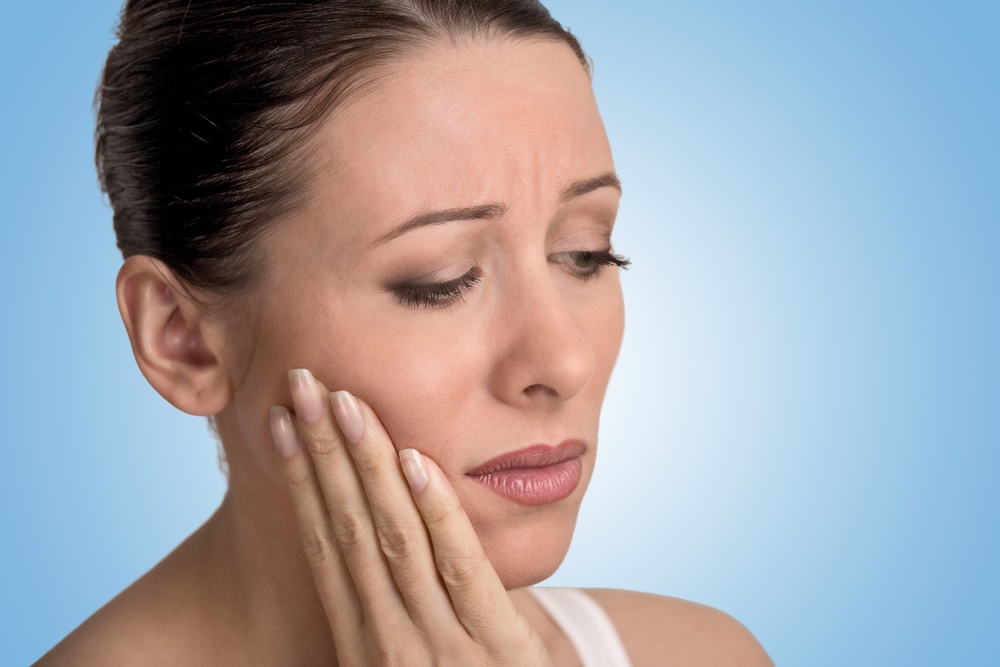
“OUCH!”
You’re three bites into your dinner when your tooth starts acting up again. You know, the one near the back on the left side? The one that’s been hurting like this on and off for… how many weeks now?
If this scenario sounds familiar to you, keep reading because there’s a problem.
What causes a toothache?
Toothaches can be caused by a number of different things, all of which deserve immediate attention. With the exception of sporadic, dull aching in the jaw or gums associated with teeth erupting (which usually ends with the wisdom teeth around age 21) there are no completely harmless causes of tooth pain. Even that natural sensation of a tooth erupting should be identified and confirmed by a dentist to ensure it’s not a sign of impaction or abscess, especially for adults over the age of 21.
Under normal circumstances, your teeth should not hurt. Period.
Generally, the pain associated with a toothache is caused by an inflammation of the soft pulp that makes up the center of each tooth, and which surrounds the nerves and blood vessels keeping your tooth alive. This inflammation could be a sign of:
- Cavities (tooth decay)
- Infection at the root of the tooth
- Chipped or broken teeth
- Damaged fillings
- Repetitive motions (chewing or grinding)
- Infected gums
The pain itself can present itself in various ways, and there may be associated symptoms as well. For example, you may feel:
- Sharp, throbbing, or constant pain
- Tooth pain that only occurs when pressure is applied
- Swelling, painful gums
- Bad taste in the mouth (from an infection in a tooth)
- Fever or headache
In some cases, the pain is intermittent, at least at first. If this is the case, you may find it’s triggered by:
- Cold drinks or food
- Sweet foods
- Biting down on anything
- Putting other pressure on the tooth
In all these cases, the most important thing to remember is that trying to ignore a serious toothache is only going to prolong the suffering and likely make matters worse.
How do you treat a toothache?
"Generally, the pain associated with a toothache is caused by an inflammation of the soft pulp that makes up the center of each tooth, and which surrounds the nerves and blood vessels keeping your tooth alive."
In the short term, there’s nothing wrong with treating the pain and getting on with your life. No one should have to withdraw from the world on account of a toothache. Here are some common sense ways to relieve the pain associated with toothache:
- Avoid triggers - If your pain is intermittent and you’ve identified certain foods or actions that trigger it, simply try to avoid eating or doing those things. Chew on the other side of your mouth, let your coffee cool more, etc.
- Over-the-counter pain medication - NSAIDs (like ibuprofen and naproxen sodium) can reduce swelling from inflammation and relieve the pain. Non-NSAID acetaminophen works too. Topical gels or liquids containing benzocaine can also provide temporary relief.
- Flossing - In some cases, food particles wedged between teeth can cause or exacerbate a toothache. You should be flossing at least once a day anyway, but if that’s not your habit, a good flossing may provide some relief.
- Salt water rinse - Minor discomfort, including the natural pain associated with teeth coming in, will usually fade if you rinse your mouth with warm salt water. You’ll likely need to do so every hour or so to keep the pain under control, and using this trick in combination with OTC pain reliever usually enhances the benefits of both.
Is treating the pain good enough?
It’s important to note that all of the treatments highlighted above are simply short term ways to control the symptoms of a toothache. They’re doing nothing to address the cause.
In the long term, it’s vital that you see a dentist, allow them to assess the root cause of your pain, and recommend appropriate treatment that’s going to solve the problem itself. The sooner you can get in to see the dentist, the better, since inflammation or infection in the teeth or gums can easily spread to other parts of the body as well, making the matter worse.
So, next time you run into the scenario described at the outset, call your dentist and set up an appointment as soon as possible. Then go about treating the pain so you don’t have to suffer with it. What you shouldn’t do is ignore it.
If you’re dealing with any kind of tooth pain, large or small, don’t let the cost of treatment stand in the way of getting the relief you need. A discount dental plan can make it much easier for individuals and families without dental coverage to find a dentist and take care of tooth pain quickly and affordably.

